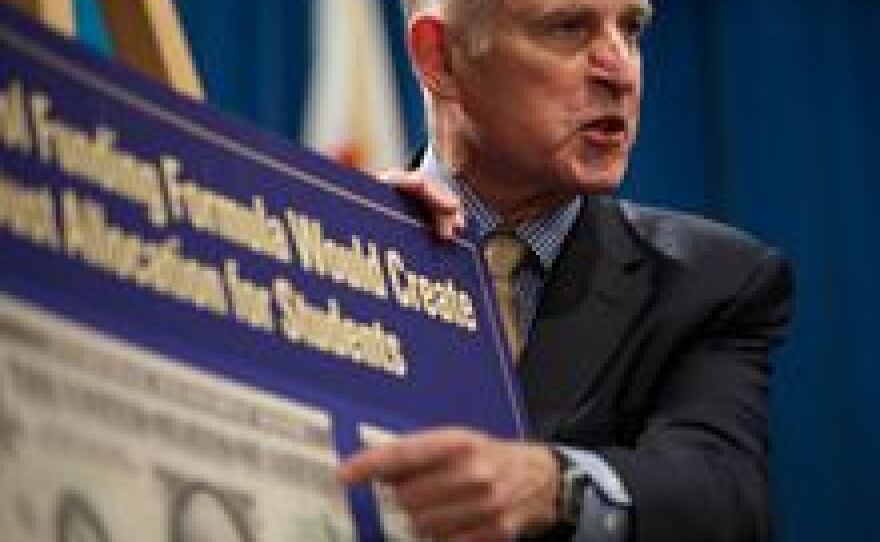The state will have about $3 billion more than expected in the next fiscal year. The added revenue is due in part to Proposition 30, which increased sales and income taxes after voters passed it last fall. In announcing his May budget revisions, Governor Jerry Brown proposed spending $1.9 billion of that on education. Beyond that the governor took a more cautious tone.
"This is a prudent budget. It's one the responds to our educational and our health challenges. But it's one that, unlike those of the past, is going to be very prudent, because we're sailing into some rather uncertain times," said Brown on Tuesday.
Brown cited federal sequestration, unstable foreign economies, and the high cost of healthcare and prison spending as possible threats to the state's economy.
His revised budget increases per-student spending at both the K through 12 and college levels. It also includes $72 million for county probation departments where workloads have increased as county jails took in more low-level offenders. Another $48 million will go toward job training. But there weren't many big ticket items beyond that.
Sacramento State University Political Scientist Steve Boilard says that likely won't make Brown's fellow Democrats very happy.
"Although the leadership I think is talking the talk in the assembly and the senate… the need for prudence and discipline etc.," said Boilard. "But member by member everybody has something they've kind of promised their constituents they want to be able to deliver. So being told no, now that we finally got a tax increase you can't really increase spending…. I don't think that's going to go over real well."
Boilard's analysis appears to be ringing true among some Democrats. In a statement, Senate President pro Tem Darrel Steinberg said he's glad there is no deficit this year. But he's disappointed Brown didn't propose restoring earlier cuts made to the courts and health and human services.
Democratic Assembly Speaker John Perez says he doesn't see any major sticking points between his house and the governor. He pledged the Assembly will do its part to get a budget passed on time.
"In the past two years we've passed on time, balanced budget s that have seen our credit ratings increased. And we will build on that success with a budget that we pass on time this year," said Perez.
Republicans had concerns of their own about the revised budget. They lamented the lack of a formal rainy day fund and were displeased with Brown's proposal to revamp business friendly enterprise zones. Republican Assemblyman Jeff Gorell is Vice Chair of the Budget Committee. He says Brown should also look closer to home to see why California's economy is slowing.
"The governor blames that on some decisions made in Washington DC as well as some global economic forces," said Gorell. "A lot of that has to do with the decisions made in this building as well. Including the impacts of Prop 30, the tax increase, cap and trade, and some of the regulations and burdens we've put on California businesses has damped, in some ways, the California economy."
Still, the Republicans generally support Brown's moderate approach to spending. And members of both parties support the governor's plan to give schools more control over how they spend their money. But there is no agreement on how the money should be distributed in the first place. That's likely to be one of the big battles as the governor and legislature make their way toward the June 15th budget deadline.





